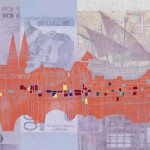The OpenLux investigation is based on a new analysis of Luxembourg’s corporate register. In particular, it focuses on the ultimate beneficial owners, or UBOs, of companies based in Luxembourg. Read on to find answers to frequently asked questions about this complex topic.
- 1 What is an ultimate beneficial owner (UBO)? Why is it important to know the identities of UBOs?
- 2 Why does Luxembourg matter?
- 3 Why did Luxembourg create its UBO register?
- 4 How does Luxembourg’s UBO register work?
- 5 What are the problems with Luxembourg’s UBO register?
- 6 How did OCCRP and partners manage to use it, anyway?
- 7 What does the data show?
- 8 How does Luxembourg’s UBO register compare to other countries’ versions?
- 9 What are the prospects for getting Luxembourg’s database improved? Who’s working on this? Who’s responsible?
What is an ultimate beneficial owner (UBO)? Why is it important to know the identities of UBOs?
An ultimate beneficial owner, or UBO, is the person who stands to profit or benefit from a corporate entity. A legitimate company’s UBO might simply be its legal owner.
In complex corporate structures, however, the UBO or UBOs may not appear among a company’s shareholders because they’re hidden behind proxies or other companies. In such cases, criminals and kleptocrats can store their money, or move it around the world, while keeping their names off of the paperwork.
Thanks to leaks such as the Panama Papers, we know that there’s a massive industry of lawyers, accountants, and company formation agents who are willing to help them.
That’s why the disclosure of up-to-date and accurate beneficial ownership information is essential for law enforcement agencies and investigative journalists looking to prosecute or expose acts of corruption, a large majority of which involve the use of anonymous companies to evade detection.
Eighty-one countries have laws requiring the beneficial owners of companies located there to be registered with a government authority. But there are varying requirements about what kinds of corporate entities are required to file disclosure, virtually all have gaps in the accuracy of the information collected, and many place limits on who may access it.
Transparency advocates say that UBO registers should be free and open to the public. People have the right to know who is building a factory in their town, selling insurance, teaching their children, or providing their medicine. Journalists and other civil society actors want access so they can investigate corrupt actors independently of law enforcement. As an additional benefit, they argue, this information would allow legitimate companies to know who they’re doing business with, limiting their exposure to bad actors.
Why does Luxembourg matter?
Despite being one of the world’s smallest countries by both size and population, Luxembourg maintains a massive financial service industry that attracts trillions in foreign investment.
Investors from around the globe are drawn to the country for its low corporate tax rate and the degree of secrecy it affords. According to the Tax Justice Network, Luxembourg is the sixth most secretive financial jurisdiction in the world, and also ranks sixth on its corporate tax haven index.
Luxembourg’s regulatory gaps have also been acknowledged by a study published by the European Parliament, which found that “Luxembourg takes the lead among high-risk countries within the EU” in terms of vulnerability to money laundering.
While the country’s official corporate tax rate is about 25 percent, the 2014 Luxembourg Leaks investigation revealed how it reached a series of back-room agreements with the “Big Four” accounting firms to lower the tax bills of more than 340 multinational companies. These deals, known as “tax rulings,” allowed them to pay less than 1 percent of their profits in taxes.
These revelations put newly elected EU Commissioner Jean-Claude Juncker under fire. When the Luxembourg Leaks went public, Juncker had just taken office after serving as the country’s prime minister for nearly two decades. After surviving a no-confidence vote, Juncker vowed to prioritize fighting tax avoidance while in office. Years later, he recalled his delayed response to the issue as one of the biggest mistakes of his five-year term.
Why did Luxembourg create its UBO register?
Though Luxembourg has long been a prime destination for foreign cash, it established a UBO register only after considerable outside pressure.
Members of the European Union are obliged to pass anti-money-laundering legislation that corresponds to a set of common standards. Over the last decade, these rules have been repeatedly toughened and expanded thanks in no small part to a series of journalistic investigations that exposed how the wealthy evaded the existing system.
During negotiations over the last major overhaul of the EU rules, the European Parliament advocated for adding a requirement that member states create UBO registries and open them to the public. Its case was bolstered by the release of the Luxembourg Leaks, a major investigation by ICIJ that showed how major companies exploited corporate structures based in Luxembourg to minimize their tax bills.
The package adopted by the EU in 2015 did require member states to create UBO registries for the first time. In a blow to transparency advocates, though, there was no requirement to open them to the public.
Within a few years, however, a series of terrorist attacks, as well as the release of the Panama Papers investigation, compelled policymakers to strengthen AML rules once again. An update to the 2015 regulations required member states to make their UBO registers public.
Along with several other countries, Luxembourg was late out of the gate, with the European Commission referring the country to the European Court of Justice in late 2018 for failing to enforce even the previous set of standards.
The country finally passed a law to establish its UBO register in January 2019, and the database opened that March. It has been praised by transparency group Global Witness for being one of just five EU countries to meet the requirements for a publicly-accessible register by the January 2020 deadline.
How does Luxembourg’s UBO register work?
Luxembourg’s UBO register is maintained by Luxembourg Business Registers, a quasi-official body run by the state, the Chamber of Commerce, and the Chamber of Skilled Trades and Crafts.
The register is accessible to the public on the agency's website, which already contains the regular company register. After passing a security question, users can search for companies by name or identification number.
The UBO register requires no fees or registration to access. However, there are serious problems that limit the register’s usefulness for journalists, activists, or the general public.
What are the problems with Luxembourg’s UBO register?
The limitations of the register are apparent from a glance at the search results it produces. Many companies are listed as having a “certificate of non-registration of beneficial owners,” which indicates that, in contravention of the law, they have not submitted their UBOs to the register.
According to government figures, nearly 90 percent of Luxembourg’s companies have submitted their UBOs to the register as required. In fact, according to data scraped from the register by Le Monde, the true figure is closer to 50 percent. Even when the required disclosures have been made, gaps remain. This can happen, for example, if none of the company’s owners reach the 25 percent threshold that makes their disclosure mandatory. In such cases, a message explains that since “no beneficial owners could be identified,” the company’s “senior managing official(s) have been registered” instead.
In cases when an ultimate beneficiary wants to disguise his or her involvement with a company, these positions are usually filled with proxies or legal professionals. In such cases, too, researchers find no useful information in the database. But the register’s most significant flaw is also one of the most basic: There is no way to search for owners by name. A journalist looking to learn whether a criminal or corrupt official has a Luxembourg company would have to be lucky enough to find it in the database at random.
“The fact that one can’t search by the name of the UBO can be seen as a way of protecting privacy,” said Maira Martini, a policy expert at Transparency International. The search for a “balance between public and private interest” when crafting UBO rules has figured prominently in discussions among EU legislators, she noted.
An additional problem with Luxembourg’s register, Martini said, is the lack of a mechanism to ensure the data is accurate. “Denmark and some other EU countries have started to implement verification mechanisms, so there’s certainly room for improvement,” she said. “This is a crucial loophole that needs to be fixed.”
How did OCCRP and partners manage to use it, anyway?
To get around the shortcomings of Luxembourg’s UBO register, French newspaper Le Monde managed to scrape 3.3 million records from the register’s online platform. These include corporate documents and financial statements for the 260,000 companies that have been registered in Luxembourg since 1955. The scraped data includes the names of 117,424 beneficial owners (or administrators, when the owners could not be identified).
In collaboration with OCCRP and its data team, which processed the database, journalists representing a dozen outlets from across the world have been able to search this data by name, gathering clues that enabled them to produce stories of interest to their readers.
What does the data show?
The names journalists found were striking. Mingling alongside billionaires, singers, actors, and star sportsmen are arms dealers, leaders of criminal organizations, and friends and family members of prominent political figures from around the world. At least 104 of the members of the Forbes billionaires list appear in the database.
Journalists also spotted:
An arms dealer at the center of the biggest corruption scandal in France;
The leader of one of the largest Russian criminal organizations, with connections to the Kremlin;
An ex-son-in-law of Tunisia's former dictator;
A Turkish businessman accused by U.S. authorities of being linked to a $511 million tax credit scheme;
An Indonesian palm oil magnate considered responsible for the deforestation of thousands of hectares of virgin forest; and
Several members of the fearsome ’Ndrangheta mafia.
How does Luxembourg’s UBO register compare to other countries’ versions?
According to EU regulations, member states were supposed to adopt publicly available beneficial ownership registers by January 10, 2020, but most have not done so. Luxembourg is one of only five member states to have implemented a register that is free and publicly accessible. The others are Bulgaria, Denmark, Latvia, and Slovenia.
Though other EU member states also have registers, seven have put up paywalls and 17 have not made theirs available to the public. The U.S. Corporate Transparency Act, which passed last month, calls for the United States to set up a UBO register as well, but it will be made available only to law enforcement.
Thom Townsend, the executive director of OpenOwnership, an NGO that advocates for transparency in beneficial ownership data, describes Luxembourg’s register as “marginally better than average,” with limited utility because it can only be searched by company, rather than by owner.
Germany’s register works in the opposite way — you can search for people, but not for companies. On top of that, Germany only allows its own citizens to access its register and charges fees for each search.
The accuracy of the data submitted is also a problem. Luxembourg is not alone in having gaps in its register. A study on the U.K.’s Companies House register, which is praised for its public and cost-free access, found that children under two appeared as UBOs of 4,000 companies. Another 400,000 companies had yet to declare or could not say who their beneficial owner was.
Denmark’s register has been heralded for providing some of the most accurate UBO information in the world, requiring any beneficial owner to submit a picture of their passport or European identity card. These automated checks are then followed by more detailed manual checks in suspicious cases. If a company cannot or has not provided accurate UBO information, authorities can dissolve it.
Finally, Denmark is also among a small set of countries that publish UBO information in a structured open data format, which makes it easier to work with and allows it to be cross-checked with other countries’ data.
What are the prospects for getting Luxembourg’s database improved? Who’s working on this? Who’s responsible?
Whether the accessibility and usefulness of Luxembourg’s UBO register is improved will depend on what is mandated by the European Union. Though repeated revelations of corporate abuses have built a powerful argument for greater transparency, it remains to be seen whether there is enough political will to force member states to make changes.
The EU’s fifth anti-money laundering directive obligates member states to update their UBO registers to use machine-readable and structured beneficial ownership data, so that an interconnected EU-wide register can be created by March 10, 2021. But this information is not required to be submitted in what is called “open data format,” and there will be few changes on how individual registers collect and share UBO information.
“There is a huge debate on what information in the company register should be published as open data and what should not,” said Martini of Transparency International. Without an open data requirement, she said, the EU will still be effectively allowing member states to make their own rules, such as making users register or pay a fee.
What stops them from doing this? One of the biggest barriers is privacy.
Countries that restrict searches by UBO name can argue this is important for protecting privacy — as, indeed, Luxembourg has. “There are already court cases popping up challenging these registers” on the basis that they expose personal information, Martini said.
In addition to creating more complete databases, advocates say more funding is required to ensure that the UBO information is accurate. After all, if false information is submitted, it doesn’t matter whether the public sees it or not.
“When we’re thinking about all this stuff, there’s the policy point, but there’s of course the really boring question of who pays for it,” Townsend explained.
Denmark says it conducts manual checks on each company that files UBO information. This is seen as a best practice, but it also requires hiring skilled financial investigators to look into each of these submissions, he said. This revenue could come from taxes, or from raising the fees that each company has to pay upon formation.
“The fundamental point," he said, “is that the money isn’t there, and it needs to be.”




